
Cheshire Constabulary has pledged its commitment to enhancing the safety of police officers and staff as part of a national review.
Police safety training is to be overhauled and an assessment of equipment available to the frontline will be carried out following the findings of a survey commissioned by the National Police Chiefs’ Council and the College of Policing.
More than 40,000 officers and staff across the country completed the survey, which has allowed a full-scale review in response to concerns about a rising number of assaults and increased violence against officers.
All 28 recommendations were unanimously agreed by Chief Constables’ Council earlier this year but publication of the report was delayed due to the Covid-19 pandemic.
Today (Wednesday 2 September) it has now been published and confirms that work has been ongoing nationally over the past few months to begin implementing the recommendations.
In Cheshire, the force has taken on board the findings from the national review and has introduced a local action plan to meet the needs of officers and staff.
Chief Constable Darren Martland said: “Any attack on a police officer is shocking but recent incidents across the country serve as a stark reminder of the dangers that they face on a daily basis.
“As Chief Constable of Cheshire the safety of my officers is of paramount importance and I am committed to doing all I can to ensure that they are properly trained and equipped with the tools that they need to do their job effectively.
“That is why the force is supporting this national review, commissioned by the National Police Chiefs’ Council. It will complement the work that we already carry out to asses and mitigate the threats and risk our officers face.
“As well as the national survey, an internal review has also been carried out. From both our findings and those from the national review, an action plan has been put together in relation to the key points. Those areas have been allocated a senior officer to take the lead and start to make a real difference in ensuring our officers’ safety.”
Cheshire’s action plan includes a focus on training and wellbeing support, equipment and operational response, criminal justice outcomes and roads policing and officer safety.
Over the past 12 months the force has recorded a total of 637 assaults on police officers – with or without injury – this equates to more than 50 assaults a month.
CC Martland added: “The impact of an assault on an officer should not be underestimated – not only does this have an effect on their physical and mental wellbeing it also potentially takes an officer off the streets for a period of time putting added pressure on others to uphold the level of service we strive to provide to the communities of Cheshire.
“I am committed to ensuring that as a force we are doing everything we can to reduce the risk to our officers. However, in cases where an officer is assaulted on duty we will make sure they receive all the necessary support from the Constabulary and, where appropriate, action is taken against offenders and they are brought to justice.
“It is important to remember that attacking an emergency services worker is a criminal offence and can result in a jail sentence.”
David Keane, Police and Crime Commissioner for Cheshire, added: “I am supportive of these changes which will provide more protection for police officers and police staff.
“No officer or PCSO should go to work expecting to be attacked but, sadly, this is becoming an increasingly regular occurrence. Individuals working on the frontline put themselves at risk every day to protect Cheshire residents, therefore it’s vital they are provided with the right training and appropriate equipment to allow them to carry out their roles safely.
“In my role to monitor the performance of Cheshire Constabulary on behalf of Cheshire residents, I will ensure these changes are providing the best protection for our officers and staff.”
In September 2019, NPCC Chair Martin Hewitt commissioned a team of police officers and staff to work with the College of Policing to gather professional expertise, review available evidence and make recommendations to improve officer and staff safety. All 28 recommendations were unanimously agreed by Chief Constables’ Council in January 2020.
Publication of this report was delayed due to the Covid-19 pandemic, which has also highlighted issues of safety for frontline officers and staff. Work has been underway since then to begin implementing the recommendations of this review and improve safety of officers and staff.
The package of measures agreed nationally includes:
- The College of Policing overhauling current safety training and replacing it with a new national curriculum, including recommended contact time with trainers, which all chief constables in England and Wales have committed to ensuring is met. Current provision of personal safety training was found to be inconsistent with officers in some forces receiving 16 hours training compared with four in others.
- Introducing an improved process for decision-making about deployment, equipment and other operational issues. A national framework for conducting a strategic threat and risk assessment will be created to ensure consistency of approach across police forces, even if local circumstances mean different outcomes in terms of decisions about equipment and deployment.
- Every chief constable reviewing whether their frontline officers and staff have the equipment they need and increasing the availability of Taser, body armour, spit and bite guards, protective gloves and high-visibility clothing to proportionate levels if supported by their strategic threat and risk assessments. The review has maintained the position that these decisions must be taken by chief constables based on local circumstances.
- Research to examine racial disparities in the police use of Taser. In England and Wales, national use-of-force data has shown that people perceived to be black or black British were involved in a higher of proportion of incidents where less lethal weapons (principally Tasers) were used compared to people perceived to be white. Research has been commissioned to address the current evidence gap in understanding the causes of the disparity and to make recommendations to minimise it.
- Expediting trials of new technology or equipment that could enhance safety such as changes to prevent assaults in police vehicles and remotely operated vehicle immobilisation devices.
- A hard line approach to investigations into officer assaults with arrest of an offender the default position. This will be supported by work to set out the standards police victims of assault should expect at each stage of the criminal justice process and a review of impact of the Assaults on Emergency Workers (Offences) Act 2018 on the outcomes for those assaulted.
The College of Policing survey was sent out to every member of the police service registered for online learning, and more than 40,000 responses concerning safety and wellbeing were received. It is believed to be the largest ever survey to have been carried out in policing, in England and Wales with 20 per cent of all police officers and over 25 per cent of all PCSOs submitting responses.

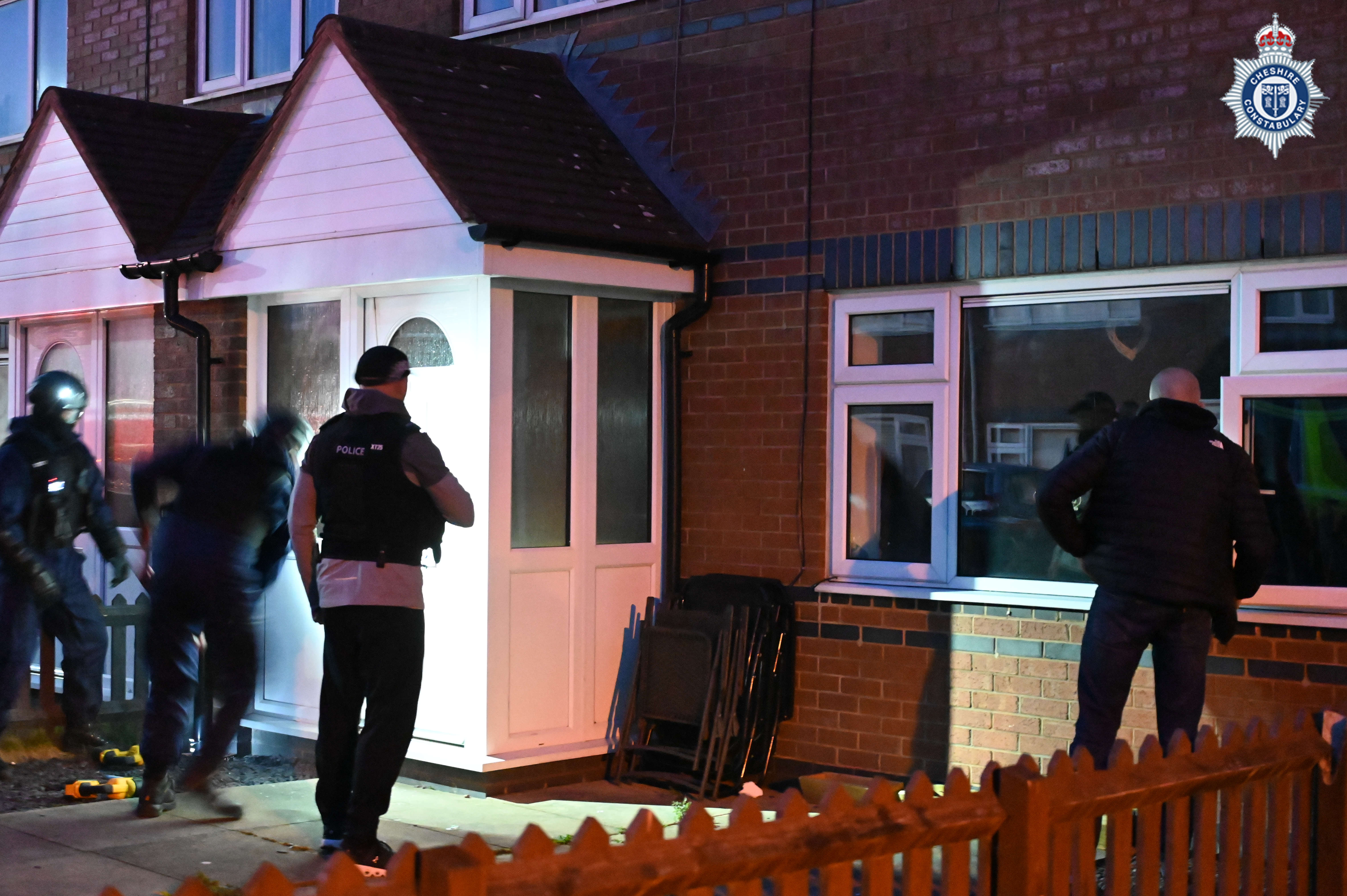 Ten arrested for drugs offences following warrants in Chester
Ten arrested for drugs offences following warrants in Chester
 Suspended prison sentence and indefinite ban for Cheshire man who abused his dog
Suspended prison sentence and indefinite ban for Cheshire man who abused his dog
 Recovered Stolen Items
Recovered Stolen Items
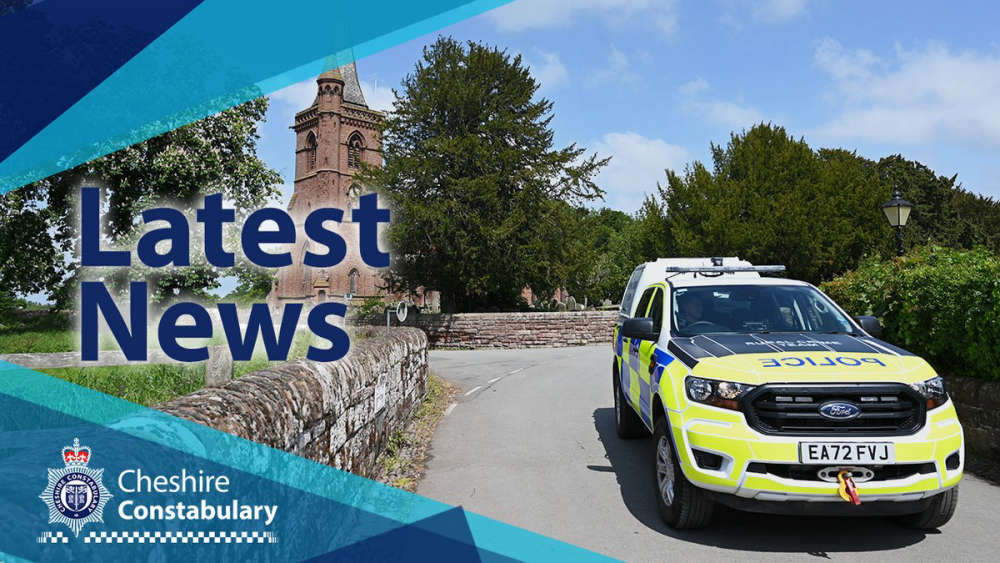 Man charged in relation to courier fraud
Man charged in relation to courier fraud
 Police to target criminal use of Cheshire’s roads
Police to target criminal use of Cheshire’s roads
 Appeal for help in tracing wanted Ellesmere Port man
Appeal for help in tracing wanted Ellesmere Port man
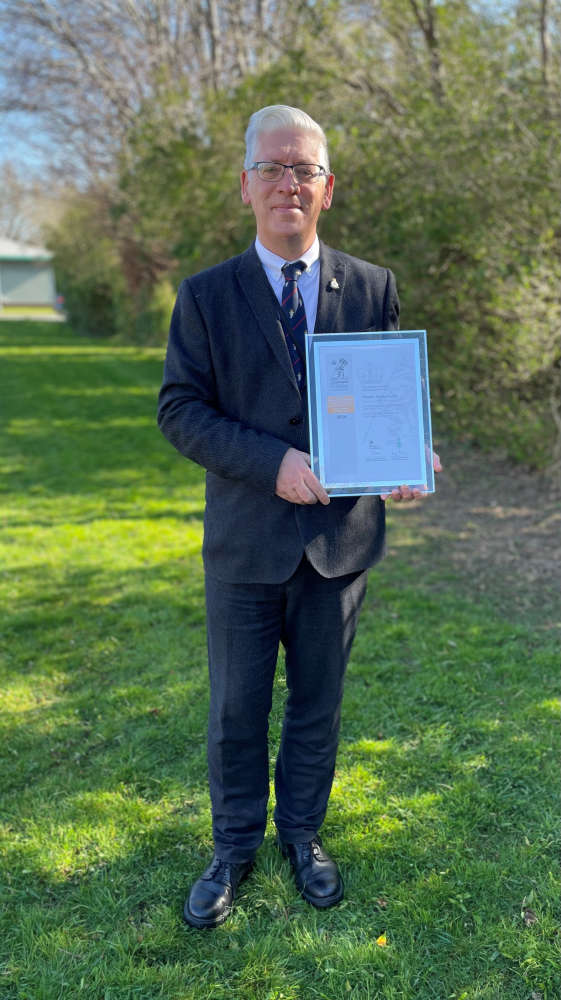 Council awarded Gold Armed Forces Award
Council awarded Gold Armed Forces Award
 Appeal for footage and witnesses following collision in Delamere
Appeal for footage and witnesses following collision in Delamere
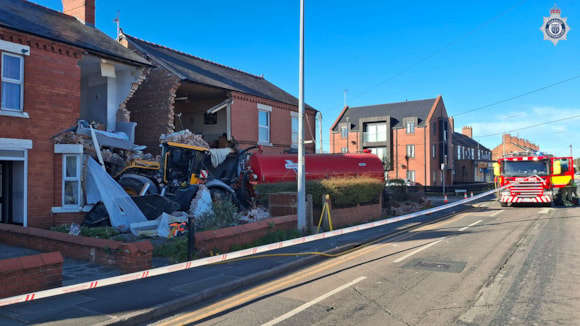 Appeal for information following serious collision in Chester
Appeal for information following serious collision in Chester
 Your chance to get involved in police scrutiny meetings
Your chance to get involved in police scrutiny meetings
 New Events at Jodrell Bank
New Events at Jodrell Bank
 Inspiring Futures at The Queen’s School
Inspiring Futures at The Queen’s School
 Bowmere Hospital celebrates 20 years of mental health care
Bowmere Hospital celebrates 20 years of mental health care
 Man charged with burglary and drug offences following Chester police stop check
Man charged with burglary and drug offences following Chester police stop check
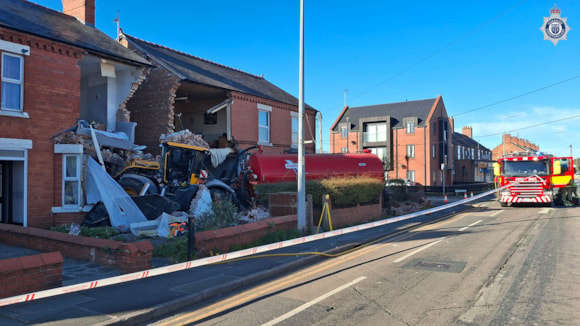 Vicars Cross Road closed following collision in Chester
Vicars Cross Road closed following collision in Chester
 Man jailed for controlling and coercive behaviour and assault
Man jailed for controlling and coercive behaviour and assault
 Plan unveiled to transform and improve emergency care at Countess of Chester Hospital
Plan unveiled to transform and improve emergency care at Countess of Chester Hospital
 Chester & Wirral Football League - Weekend Round Up
Chester & Wirral Football League - Weekend Round Up
 Ladbrokes returns to Chester Racecourse
Ladbrokes returns to Chester Racecourse
 Blues Match Report: Chester FC 1 - 1 Curzon Ashton
Blues Match Report: Chester FC 1 - 1 Curzon Ashton